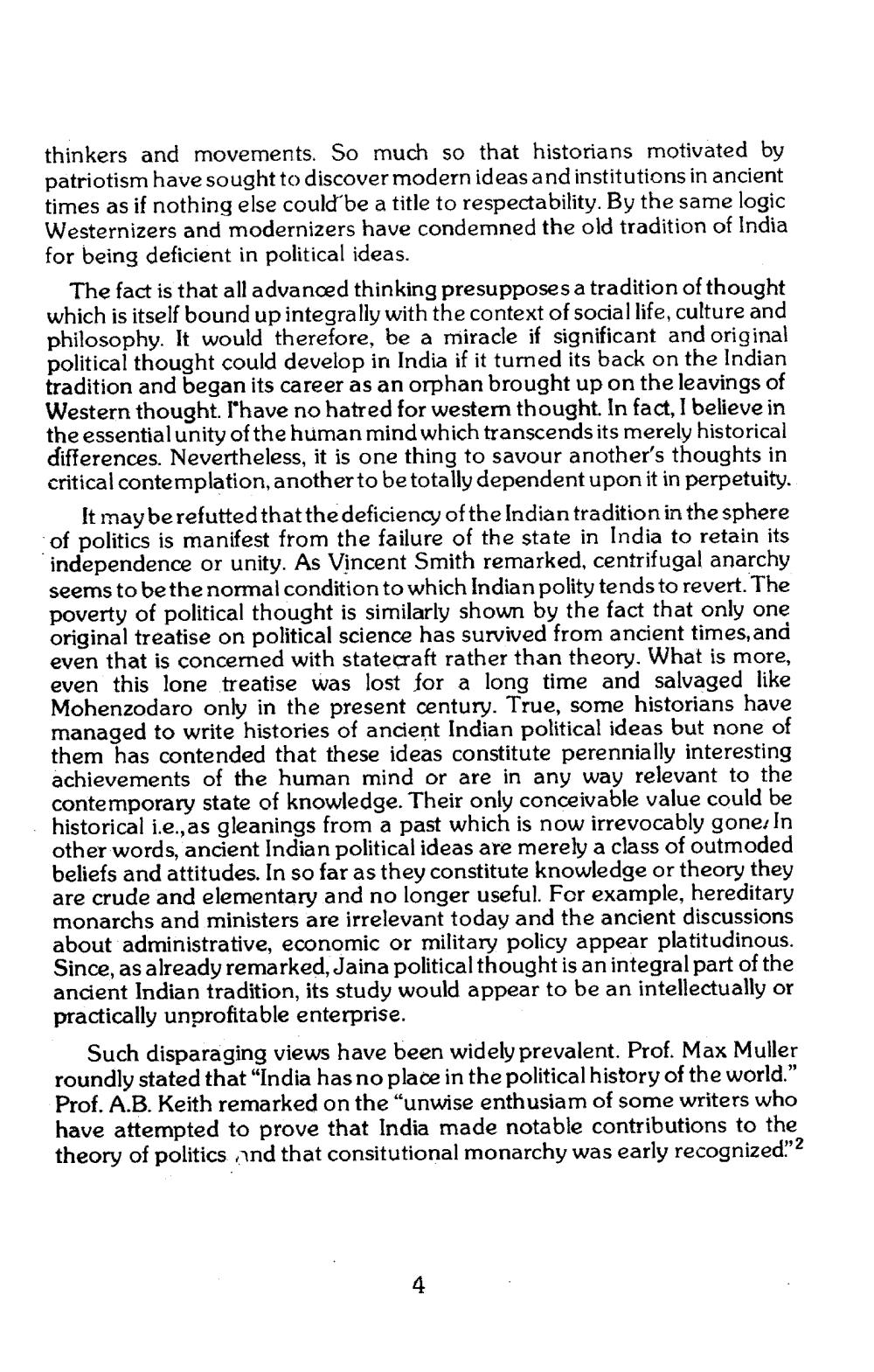________________
thinkers and movements. So much so that historians motivated by patriotism have sought to discover modern ideas and institutions in ancient times as if nothing else could be a title to respectability. By the same logic Westernizers and modernizers have condemned the old tradition of India for being deficient in political ideas.
The fact is that all advanced thinking presupposes a tradition of thought which is itself bound up integrally with the context of social life, culture and philosophy. It would therefore, be a miracle if significant and original political thought could develop in India if it turned its back on the Indian tradition and began its career as an orphan brought up on the leavings of Western thought. I have no hatred for western thought. In fact, I believe in the essentialunity of the human mind which transcends its merely historical differences. Nevertheless, it is one thing to savour another's thoughts in critical contemplation, another to be totally dependent upon it in perpetuity.
It may be refutted that the deficiency of the Indian tradition in the sphere of politics is manifest from the failure of the state in India to retain its independence or unity. As Vincent Smith remarked, centrifugal anarchy seems to be the normal condition to which Indian polity tends to revert. The poverty of political thought is similarly shown by the fact that only one original treatise on political science has survived from ancient times, and even that is concerned with statecraft rather than theory. What is more, even this lone treatise was lost for a long time and salvaged like Mohenzodaro only in the present century. True, some historians have managed to write histories of ancient Indian political ideas but none of them has contended that these ideas constitute perennially interesting achievements of the human mind or are in any way relevant to the contemporary state of knowledge. Their only conceivable value could be historical i.e., as gleanings from a past which is now irrevocably gone. In other words, ancient Indian political ideas are merely a class of outmoded beliefs and attitudes. In so far as they constitute knowledge or theory they are crude and elementary and no longer useful. For example, hereditary monarchs and ministers are irrelevant today and the ancient discussions about administrative, economic or military policy appear platitudinous. Since, as already remarked, Jaina political thought is an integral part of the ancient Indian tradition, its study would appear to be an intellectually or practically unprofitable enterprise.
Such disparaging views have been widely prevalent. Prof. Max Muller roundly stated that “India has no place in the political history of the world." Prof. A.B. Keith remarked on the "unwise enthusiam of some writers who have attempted to prove that India made notable contributions to the theory of politics and that consitutional monarchy was early recognized"2




